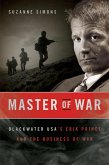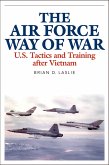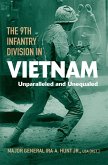"A remarkable work that challenges the received wisdom of Clausewitz's On War... [a] paradigm as to how to wage combat in our modern global environment." -John A. English, author of Monty and the Canadian Army War is changing. Unlike when modern military doctrine was forged, the United States no longer mobilizes massive land forces for direct political gain. Instead, the US fights small, overseas wars by global mandate to overthrow dictators, destroy terrorist groups, and broker regional peace. These conflicts hardly resemble the total wars fought and expected by foundational military theorists such as Carl von Clausewitz, yet their paradigms are ingrained in modern thinking. The twenty-first-century's new geopolitical situation demands new principles for warfare-deemphasizing decisive land victory in favor of airpower, intelligence systems, and indigenous ground forces. In Thoughts on War, Phillip S. Meilinger confronts the shortcomings of US military dogma in search of a new strategic doctrine. Inter-service rivalries and conventional theories failed the US in lengthy Korea, Vietnam, and Middle East conflicts. Jettisoning traditional perspectives and their focus on decisive battles, Meilinger revisits historical campaigns looking for answers to more persistent challenges-how to coordinate forces, manipulate time, and fight on two fronts. This provocative collection of new and expanded essays offers a fresh, if controversial, perspective on time-honored military values, one which encourages a critical revision of US military strategy. "Meilinger presents a new strategic and operational paradigm for how to fight and win tomorrow's wars with reduced risk and cost. This book will appeal not only to military professionals, but to scholars and civilian policymakers as well." -Colonel John Andreas Olsen, Royal Norwegian Air Force, author of Airpower Pioneers
Bitte wählen Sie Ihr Anliegen aus.
Rechnungen
Retourenschein anfordern
Bestellstatus
Storno









